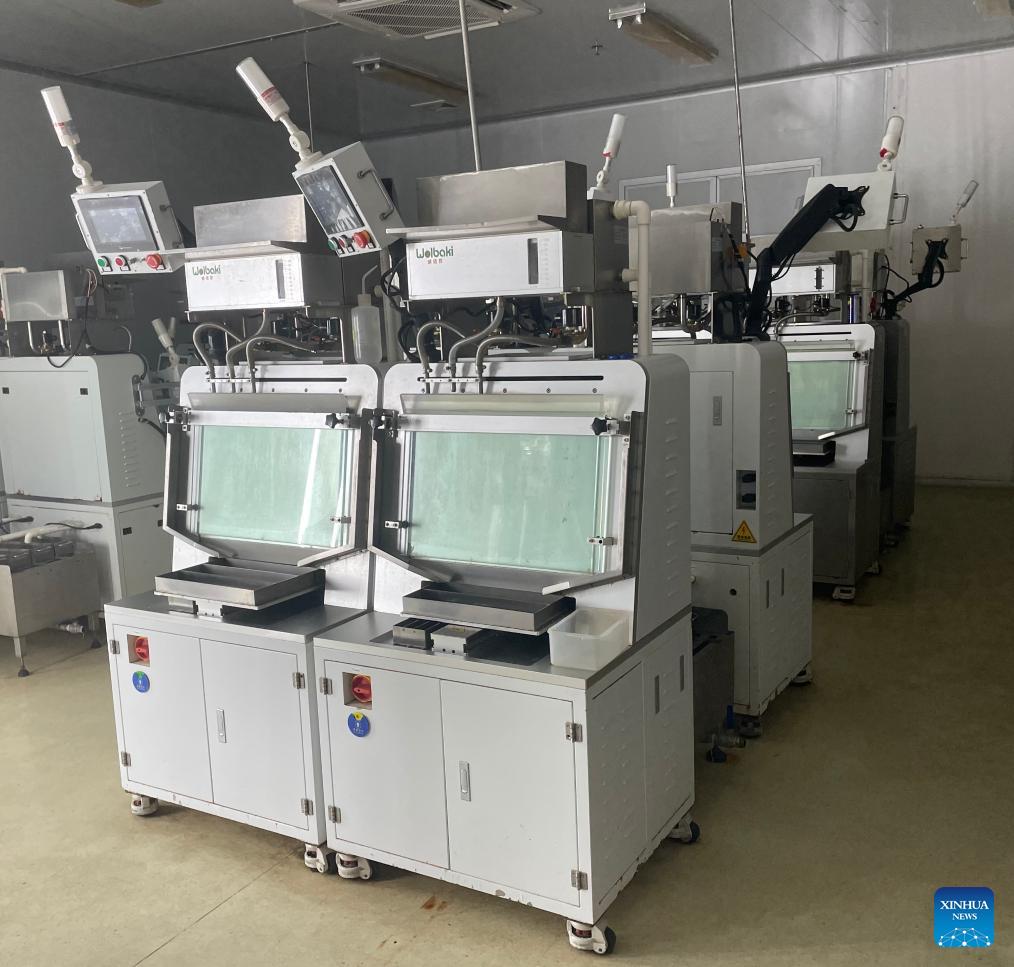
 0 Comment(s)
0 Comment(s) Print
Print E-mail Xinhua, August 3, 2024
E-mail Xinhua, August 3, 2024
This photo taken on Aug. 2, 2024 shows automated devices that can efficiently separate male and female mosquitoes at Guangzhou Wolbaki Biotech Co., Ltd. in Guangzhou, south China's Guangdong Province. [Photo/Xinhua]
A research team has developed an automated device that can efficiently separate male and female mosquitoes -- an engineering breakthrough in the biological control of mosquito-borne diseases.
The international research team, consisting of researchers from institutions such as Michigan State University, Jinan University and Guangzhou Wolbaki Biotech Co., Ltd., published their results in the Science Robotics international academic journal on Wednesday.
In recent years, mosquito-borne diseases, led by dengue fever, have become increasingly severe with climate change and human mobility. Chemical control has limited effects on these pests and brings environmental pollution and drug resistance problems, according to Li Yongjun, an associate professor at Jinan University.
On the advantages of biological control, Li said, "Studies have shown that releasing male mosquitoes that do not bite or transmit diseases to mate with wild female mosquitoes can effectively control the wild mosquito population."
Though this control technology has been verified in many countries to suppress the population density of wild disease-transmitting mosquitoes and reduce the spread of dengue fever, its large-scale regional application has been limited globally by the bottleneck issue of how to separate male and female mosquitoes.
According to Gong Juntao, a researcher at Guangzhou Wolbaki Biotech Co., Ltd., the team independently developed an automated device that can stir, separate and collect mosquito pupae efficiently. The automated separator can enable its operator to separate over 16 million male mosquitoes by working eight hours a day and five days a week, a 17-fold increase when compared to manual sex separation.
The results have shown that the automated device has the potential to help effectively control tropical mosquito-borne diseases, Gong said.
The device has been sold to 18 countries, including the United States, Australia and Italy.
Go to Forum >>0 Comment(s)